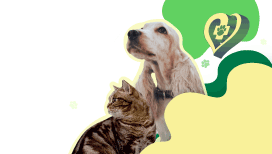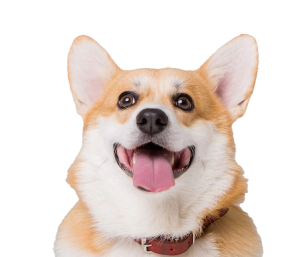Old age is not a disease
Опубліковано
22.10.2019
In the modern world, it's hard to imagine your life without a four-legged friend. For many people, a dog is a cherished childhood dream and the opportunity to have a wet-nose owner is an incredible happiness. They add color to our lives, slowing down the frantic pace and becoming an integral part of it.
Each of us remembers the touching moment when a puppy appeared in the house - the first puddles, eaten heels, torn furniture and clouds of foam rubber. The first walk, a crowd of puppy friends, morning coffee. And before you know it, time is flying by. Gray hairs cover the previously irrepressible face with frost, it becomes more and more difficult to catch up with a favorite ball, and on walks our friend seems to ask us to wait for him, slowing down the usual pace.
Dogs of different sizes age at different rates - for toy breeds, age-related changes can occur only by the age of 8-9, and for giant breeds, most of their lives have already been spent at the age of 5. Of course, these are averages and much depends on the care and conditions of the dog, its feeding, and initial health.
What should you pay attention to to prevent serious health problems in an elderly pet? Let's look at a few important points:
1. Make sure your pet is getting a nutritious, high-quality diet. Metabolic processes slow down with age and the risk of weight gain increases, which leads to obesity, diabetes, and additional stress on the joints.
Determine the optimal amount of food, which should be enough to maintain normal weight and energy rhythm. A veterinary nutritionist will help you choose a diet for an elderly dog that takes into account all the needs.
2. In old age, a walk should follow the goals of recreation, provide moderate physical activity. Every year it becomes more difficult for a dog to move actively, especially if it is a large or giant breed. Be reasonable in your expectations regarding the duration and intensity of walks, and consult your veterinary orthopedic surgeon when you notice a significant decrease in mobility. With age, the flexibility and mobility of the joints decrease, degenerative changes develop, and pain occurs. Such conditions require additional diagnostics and certain treatment. Non-steroidal anti-inflammatory drugs can help reduce discomfort and treat pain, but their use must be prescribed and approved by a veterinarian.
3. Keeping the oral cavity clean. The habit of brushing your teeth should be taught from early childhood. Regular cleaning of soft plaque will help prevent inflammation of the gums and jaw bones, the spread of germs throughout the body, and premature tooth loss. In case of tartar that has already formed, the animal should be shown to a veterinary dentist for assistance and high-quality oral cavity sanitation.
4. Prevention of infectious and parasitic diseases. According to the Companion Animal Parasite Council, all dogs, regardless of age, should be protected from parasites (fleas, ticks, heartworms, etc.). Annual vaccination is necessary for older animals, as well as for young ones. Do not forget about preventive deworming and treatment against ectoparasites.
5. Do not forget to communicate with your dog. Undoubtedly, the main need of an elderly dog is care. Be patient. As your pet ages, he or she may become less able to see or hear, or lose these abilities. But older animals are especially in need of their owners - their presence or touch is very important to them and provides peace of mind and emotional well-being. Use intelligent toys for dogs, repeat commands, and be attentive to changes in your pet's behavior. Even small changes can indicate significant health problems.
6. AAHA (American Animal Hospital Association) recommends screening tests every 6 months after the age of 7 years. Early detection of disease is crucial. Preventive testing is important to establish baseline levels and ensure that "hidden" abnormalities are detected.
Схожі статті

Ureter obstruction in cats: why it is dangerous and how to save a life
Ureter obstruction in cats is a critical condition that quickly leads to kidney failure and is life-threatening.

How to prepare your cat for a stress-free visit to the veterinary clinic
Cats are independent and sensitive animals, and a visit to the vet can be a big challenge for them. How can you avoid stress during transportation? What medications can help calm your cat? In this article, we tell you how to properly prepare for a visit to the clinic, choose a carrier, and create comfortable conditions for your cat.

Starvation diet for animals before anesthesia.
Modern recommendations

